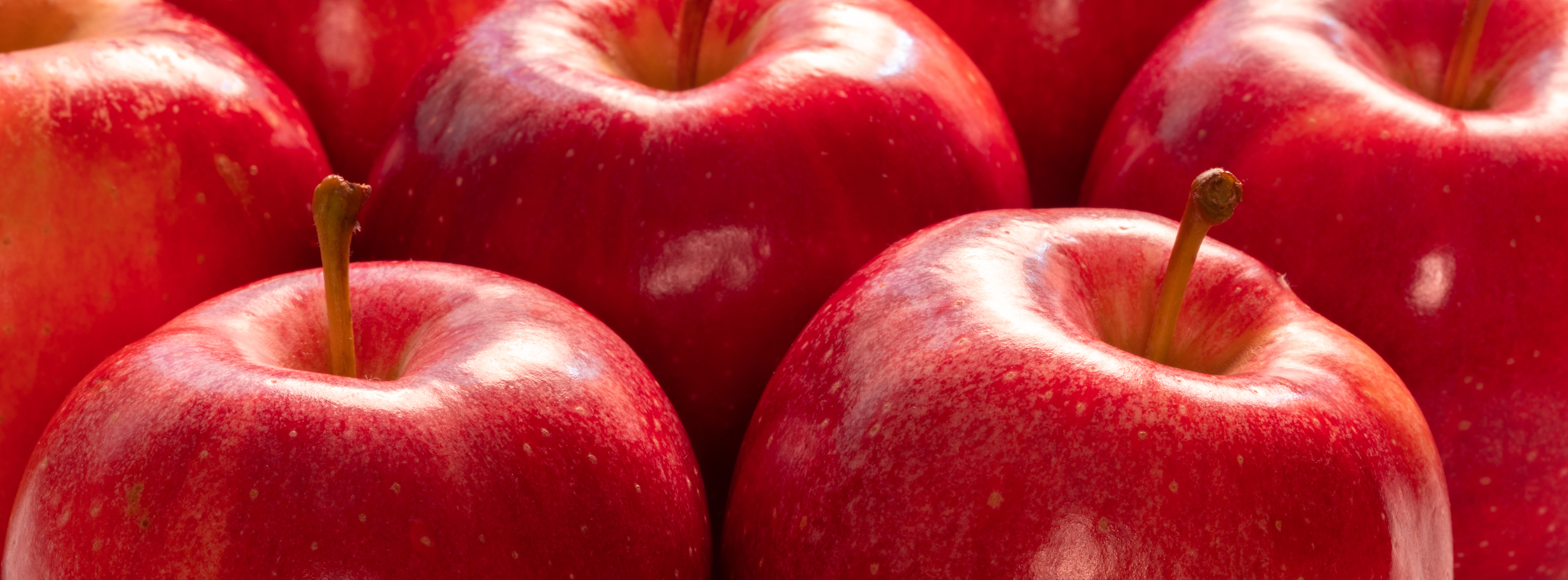by Michelle Sutton-Kerchner
Fall’s favorite fruit is ridiculously healthy for you. Here’s what you gain with every crunchy bite …
Apples Exude Fall
 Autumn Goals: A day of apple picking in an autumn-colored orchard, followed by time in the kitchen with a lit apple-scented candle until the aroma of freshly baked apple pie permeates the room.
Autumn Goals: A day of apple picking in an autumn-colored orchard, followed by time in the kitchen with a lit apple-scented candle until the aroma of freshly baked apple pie permeates the room.
Reality: A bag of fresh apples which, if lucky enough, was purchased at a farm-market decorated with scarecrows and pumpkins.
Regardless of your scenario, stock up and celebrate the season. It’s good for you!
Here are the top health perks of this conveniently self-packaged superfood.
1. Apples Encourage Weight Loss
 Research has proven apple consumption aids weight loss. Apples are dense in fiber and water, which makes them filling. Snacking on apples is a healthy, lasting way to satisfy hunger. Eaten before a meal, they help diners feel full quicker, which reduces calorie consumption. One study showed those who ate apple slices at the start of their meal consumed about 200 less calories at that sitting than those who did not.
Research has proven apple consumption aids weight loss. Apples are dense in fiber and water, which makes them filling. Snacking on apples is a healthy, lasting way to satisfy hunger. Eaten before a meal, they help diners feel full quicker, which reduces calorie consumption. One study showed those who ate apple slices at the start of their meal consumed about 200 less calories at that sitting than those who did not.
2. Apples Deliver Powerful Nutrients
At only 95 calories, a medium-sized apple contains four grams of fiber and 14 percent of the daily recommendation for vitamin C. They also are packed with polyphenols, antioxidants found in plant foods that enhance health in myriad ways. Additionally, the natural compounds found in apples may be another aspect that helps promote weight loss. (Skip the caramel dip though.)
3. Apples Help Prevent Type 2 Diabetes
High polyphenol content makes apples a sweet treat for those watching their sugar levels. Polyphenols are thought to boost insulin sensitivity and slow the body’s digestion and absorption of sugar. One study linked daily apple consumption with a 28 percent lower risk of type 2 diabetes compared to those with apple-less diets. Can’t manage a daily apple? Researchers assure a few apples per week also offered some protection from type 2 diabetes.
4. Apples Protect Your Heart
 Packed with soluble fiber, apples are proven to help lower LDL (bad) cholesterol levels. This fiber, in the form of pectin, encourages the body to use its cholesterol rather than store it. Apples’ high concentration of flavonoids can help lower blood pressure and reduce risk of stroke.
Packed with soluble fiber, apples are proven to help lower LDL (bad) cholesterol levels. This fiber, in the form of pectin, encourages the body to use its cholesterol rather than store it. Apples’ high concentration of flavonoids can help lower blood pressure and reduce risk of stroke.
One study showed favorable results when comparing the effects of eating a daily apple to the use of statins, a medication that lowers cholesterol. More research is needed, so please don’t trade your heart medicine for apples!
Don’t forget to eat the skin. It’s a treasure-trove of antioxidants that prevent cellular damage from free radicals. This further helps heart health, and can defend against cancer and other illnesses.
5. Apples Boost Your Workout
 The flavonoids in apples, especially quercetin, may increase endurance during exercise. Post-workout, these compounds help accelerate recovery. As a natural anti-inflammatory, apples are found to decrease the soreness and swelling common in fitness-fatigued muscles.
The flavonoids in apples, especially quercetin, may increase endurance during exercise. Post-workout, these compounds help accelerate recovery. As a natural anti-inflammatory, apples are found to decrease the soreness and swelling common in fitness-fatigued muscles.
If your workout leaves you strained, check with a personal trainer. Once assured you are training at the appropriate level and using proper form, consider making apples a dietary staple. You may notice delicious relief without having to hit the ibuprofen bottle.
With over 7,000 varieties, and plenty of sweet and savory recipes, it’s hard to stop with just an apple a day. Keep a decorative bowl full on the counter and have a piece of fall on the go.
Sources
“Apples Good for Your Heart,” by Brenda Goodman at webmd.com.
“10 Impressive Health Benefits of Apples,” at healthline.com.
 Fitness & Wellness News Your Source for Fitness News, Wellness News, Health News, and Nutrition News!
Fitness & Wellness News Your Source for Fitness News, Wellness News, Health News, and Nutrition News!




